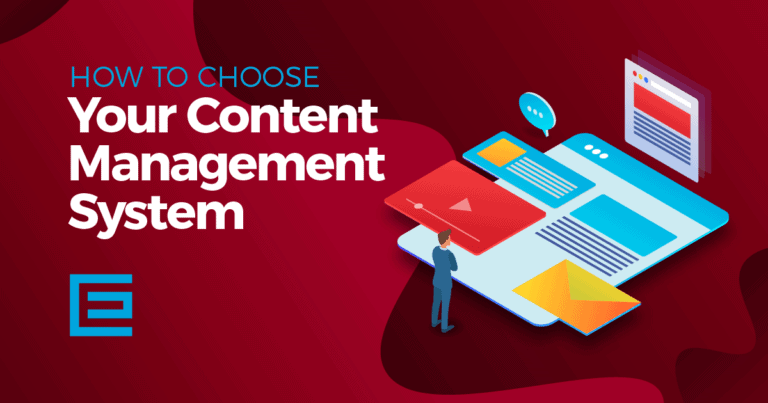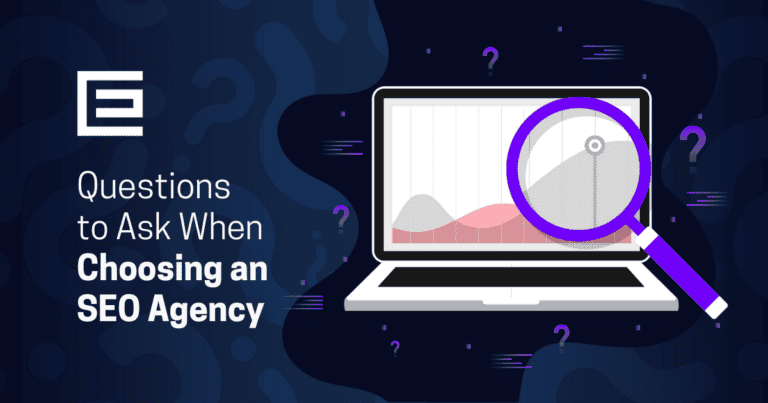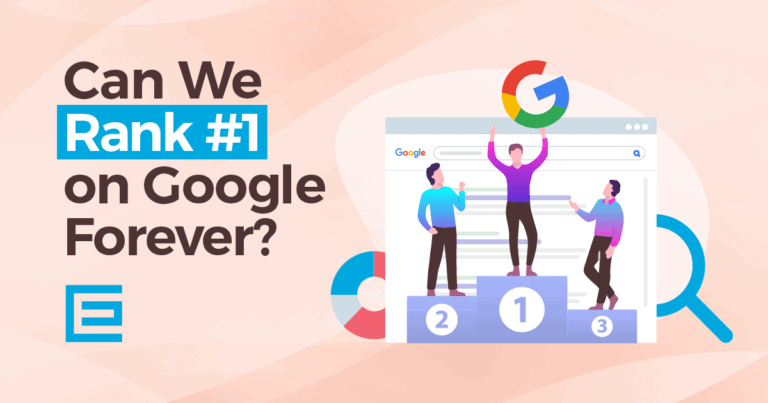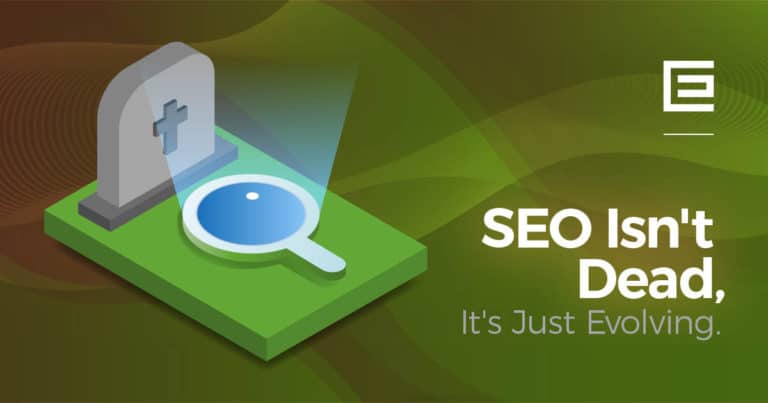When it comes to your digital marketing dollars, you may wonder which route is better to take, SEO or PPC. You can get to the top of search engines through a pay-per-click (PPC) campaign or create a more natural search engine marketing strategy through search engine optimization (SEO).
Is there a right or wrong answer? Could it be both? Before you decide, you have to understand the pros and the cons of both SEO and PPC.
SEO vs PPC
When it comes to digital marketing, two strategies stand out for their effectiveness and widespread use: Search Engine Optimization (SEO) and Pay-Per-Click (PPC) advertising. Both these tactics are important in driving traffic to websites, but they operate in distinctly different ways and serve unique purposes within a broader digital marketing strategy.
SEO: The Organic Approach to Visibility
SEO is the art and science of optimizing websites to rank higher in search engine results pages (SERPs). This process involves a variety of techniques, including keyword research, content creation, site architecture optimization, and building backlinks. The goal of SEO is to enhance a website’s relevance and authority so that it is more visible to users who are searching for related topics, products, or services. The key advantage of SEO is its long-term sustainability; once a website achieves a high ranking, it can maintain a steady flow of organic traffic, which is not only cost-effective but often perceived as more trustworthy by users.
PPC: The Fast Track to Targeted Visibility
On the other hand, PPC is a model of internet marketing in which advertisers pay a fee each time one of their ads is clicked. Essentially, it’s a way of buying visits to your site, rather than attempting to “earn” those visits organically. PPC ads can be displayed on search engines, social media platforms, and various websites. The most significant benefit of PPC is its ability to generate immediate results and its flexibility in targeting specific audiences. Advertisers can tailor their campaigns based on keywords, demographics, location, and even the time of day, making PPC a highly effective tool for driving targeted traffic and for campaigns with time-sensitive goals.
The Importance of SEO and PPC in Digital Marketing
In the realm of digital marketing, both SEO and PPC play crucial roles. While SEO is a long-term strategy focused on building a strong online presence, PPC offers immediate visibility and can be particularly useful for short-term campaigns or to complement ongoing SEO efforts. Together, they provide a comprehensive approach to online marketing, ensuring both immediate reach and sustained growth. By leveraging the strengths of both SEO and PPC, businesses can create a more robust and versatile online marketing strategy, capable of adapting to the ever-changing digital landscape and the evolving behaviors of online consumers.
Understanding SEO
Search Engine Optimization, commonly known as SEO, is digital marketing that focuses on enhancing the visibility of a website or a web page in a search engine’s unpaid results—often referred to as “natural,” “organic,” or “earned” results. At its core, SEO is about understanding and leveraging the algorithms that search engines use to rank web pages, with the aim of improving the position of a website in search results for relevant queries.
How SEO Works
SEO works by optimizing various elements of a website to make it more attractive to search engines. This process begins with keyword research, identifying the terms and phrases that potential customers are using to find products or services. Websites are then optimized around these keywords, which involves tweaking the content, the HTML source code, and the site’s architecture. SEO also involves building a site’s authority through backlinks, which are links from other websites. Search engines use these as indicators of a site’s credibility and relevance. The more high-quality, relevant backlinks a site has, the higher it is likely to rank.
Long-term Benefits of SEO
One of the most significant advantages of SEO is its long-term benefits. Unlike paid advertising, where traffic stops as soon as you stop paying, the effects of a well-executed SEO strategy can be long-lasting. Websites that achieve high rankings can enjoy sustained traffic, increased brand visibility, and credibility. This organic traffic is not only cost-effective but also tends to have higher engagement and conversion rates since it comes from users actively searching for information related to your products or services.
Key Factors Influencing SEO Success
Several key factors influence the success of an SEO strategy. These include:
- Content Quality: High-quality, relevant, and informative content is crucial. Content should not only be keyword-optimized but also provide value to the reader.
- User Experience (UX): Search engines favor websites that provide a good user experience, which includes mobile-friendliness, fast loading times, and intuitive navigation.
- On-Page Optimization: This involves optimizing individual web pages to rank higher and earn more relevant traffic. It includes aspects like title tags, headings, and meta descriptions.
- Off-Page Optimization: This primarily involves building backlinks but also includes other factors like social media marketing and influencer marketing.
- Technical SEO: This refers to website and server optimizations that help search engine spiders crawl and index your site more effectively.
Understanding PPC
Pay-Per-Click (PPC) advertising is digital marketing where advertisers pay a fee each time one of their ads is clicked. Essentially, it’s a method of buying visits to your site, as opposed to earning those visits organically, like with SEO. PPC is most commonly associated with search engine advertising, where ads appear in search engine results pages (SERPs) based on specific keywords, but it also extends to social media and other platforms.
How PPC Campaigns Work
The process of setting up a PPC campaign involves several key steps. First, advertisers select relevant keywords that they want their ads to show for. These keywords should align with the search queries of the target audience. Advertisers then create ads (text, image, or video) that will appear in the SERPs or on other websites. These ads are linked to a bidding system where advertisers set a maximum bid – the amount they’re willing to pay for a click. When a user searches for a keyword, the search engine runs an auction using these bids, along with other factors, to determine which ads will appear and in what order.
Immediate Benefits of PPC
One of the most significant advantages of PPC is the immediacy of its impact. Unlike SEO, which can take months to yield results, PPC can drive traffic to your website as soon as your ads go live. This makes it an excellent strategy for promoting time-sensitive offers, events, or product launches. PPC also allows for precise targeting, enabling advertisers to reach specific demographics, geographic locations, and even times of day. This level of control ensures that your advertising budget is spent on reaching the most relevant audience.
Key Factors for Successful PPC Campaigns
Several factors contribute to the success of a PPC campaign:
- Keyword Relevance: Choosing the right keywords is critical. They should be closely related to the products or services you offer and match the search queries of your target audience.
- Quality of Ads: The ad copy and design should be engaging and relevant, with a clear call-to-action. High-quality ads can lead to higher click-through rates (CTRs) and better ad placements.
- Landing Page Quality: The page that users land on after clicking your ad should be optimized for conversions. It should be relevant to the ad, with a clear message and a strong call-to-action.
- Bid Management: Effective bid management is essential for maximizing ROI. This involves not only setting the right bids but also adjusting them based on campaign performance.
- Campaign Monitoring and Optimization: Regular monitoring and tweaking of campaigns are necessary. This includes adjusting keywords, bids, and ad copy based on performance metrics.
PPC is a powerful tool in digital marketing, offering immediate results and precise targeting capabilities. By understanding and implementing these key factors, advertisers can create successful PPC campaigns that drive targeted traffic and achieve specific marketing goals efficiently.
SEO vs PPC – A Comparative Analysis
When it comes to digital marketing strategies, SEO and PPC are often viewed in contrast. While both aim to increase visibility and drive traffic to a website, they differ significantly in their approach, costs, and outcomes. Understanding these differences is crucial for businesses to allocate their marketing budgets effectively.
Cost Implications: Initial and Long-Term
SEO is generally perceived as a cost-effective strategy in the long run. It requires an upfront investment in content creation, site optimization, and sometimes SEO tools or services. However, once a website ranks high in search results, it attracts organic traffic without ongoing costs per visitor. In contrast, PPC requires payment for each click, regardless of conversion. While it can drive immediate traffic, the long-term costs can be higher, especially in competitive industries.
Traffic Quality and Volume
SEO tends to bring in more consistent and stable traffic over time, as high rankings can be maintained with ongoing optimization. The traffic quality is often high, as it comes from users actively searching for specific information or products. PPC, while capable of generating significant traffic quickly, might attract a mix of interested and casual browsers, depending on the targeting precision.
Conversion Rates and ROI
Conversion rates and ROI can vary greatly between SEO and PPC. SEO-driven traffic often has higher conversion rates as it comes from users with specific intent. However, the ROI can take longer to realize due to the time it takes to rank organically. PPC can offer a quicker ROI, as targeted ads can lead to immediate conversions, but the overall return must account for the cost per click.
Time for Results to Manifest
SEO is a long-term strategy. It can take months to see significant results due to the time required for ranking improvements. PPC, on the other hand, offers immediate visibility. Ads can start driving traffic as soon as the campaign is launched, making it ideal for short-term goals or promotional campaigns.
Control and Flexibility
PPC offers more control and flexibility in terms of targeting, scheduling, and budget adjustments. Advertisers can quickly change their ad copy, target different audiences, or adjust budgets based on performance. SEO is less flexible, as changes to content and strategy take time to affect search rankings.
Target Audience Reach
Both SEO and PPC are effective in reaching target audiences, but in different ways. SEO is excellent for reaching users who are actively seeking information or solutions, providing a sense of credibility and trust. PPC allows for more precise targeting based on demographics, interests, and behaviors, making it possible to reach a specific segment of the market, even if they are not actively searching for your product or service.
Both SEO and PPC have their unique advantages and limitations. The choice between them depends on the specific goals, budget, and timeline of a marketing campaign. Often, a balanced approach that leverages the strengths of both can be the most effective strategy for digital marketing success.
Pros and Cons
Both SEO and PPC offer distinct advantages and face certain challenges. Understanding these pros and cons is crucial for businesses to determine which strategy aligns best with their marketing objectives and resources.
Advantages of SEO
- Cost-Effectiveness: Once a solid ranking is achieved, SEO brings in traffic without the need for ongoing payment per click, making it more cost-effective in the long run.
- Credibility and Trust: Websites that rank high in organic search results are often perceived as more credible and trustworthy by users.
- Sustained Traffic: High rankings can lead to a consistent flow of traffic over time, independent of continuous investment.
- Broader Reach: SEO helps in capturing traffic for a wide range of search queries, including long-tail keywords that might not be feasible for PPC campaigns.
- Competitive Advantage: Achieving a high organic ranking can provide a significant competitive edge, especially in industries where paid advertising is highly competitive.
Disadvantages of SEO
- Time-Consuming: It takes time to see the results of SEO efforts, often several months or more, which can be a drawback for businesses looking for quick results.
- Constant Upkeep: SEO requires ongoing effort and adaptation to changing search engine algorithms and market trends.
- No Guarantee of Results: Despite best efforts, high rankings are not guaranteed due to the competitive and dynamic nature of search engine algorithms.
- Complexity: Effective SEO involves a range of activities from on-page optimization to content creation and link building, requiring a broad skill set and resources.
Advantages of PPC
- Immediate Results: PPC campaigns can drive traffic almost immediately after setup, making them ideal for short-term goals or promotions.
- Precise Targeting: PPC allows for detailed targeting based on demographics, interests, location, and even specific times of day.
- Measurable ROI: With PPC, every aspect of the campaign can be measured, from the number of clicks to conversions, allowing for a clear understanding of ROI.
- Flexibility: Advertisers have the flexibility to start, stop, or adjust their campaigns at any time, offering control over the advertising spend.
- Visibility in Competitive Markets: PPC ads can place a business at the top of search results, even in highly competitive markets.
Disadvantages of PPC
- Cost: PPC can be expensive, especially in competitive sectors, where cost per click can be high.
- Short-Term: Once the PPC campaign is paused or ends, the traffic associated with it typically stops, making it a short-term solution.
- Clicks Don’t Always Lead to Conversions: Not all clicks from PPC ads result in conversions, and poor campaign management can lead to wasted ad spend.
- Requires Constant Management: Effective PPC campaigns require continuous monitoring and adjustment to ensure optimal performance and ROI.
In summary, both SEO and PPC have their unique set of strengths and weaknesses. SEO offers long-term, cost-effective results and credibility, but it requires time and ongoing effort. PPC provides immediate results and precise targeting, yet it demands continuous investment and management. The choice between SEO and PPC depends on the specific goals, budget, and timeline of a business’s marketing strategy.
Integrating SEO and PPC for Maximum Impact
Integrating SEO and PPC strategies can lead to a synergistic effect, enhancing the overall impact of each approach. When used together, they can complement each other, filling gaps and reinforcing the marketing message across multiple channels.
How SEO and PPC Can Complement Each Other
- Data Sharing: Insights from PPC campaigns, such as keywords that convert well, can inform SEO strategy. Conversely, SEO data on high-performing organic content can guide PPC ad copy.
- Visibility Across Search Results: Using both SEO and PPC ensures visibility in both paid and organic search results, increasing the overall brand presence.
- Keyword and Conversion Strategy Alignment: By aligning keywords and conversion strategies across both SEO and PPC, businesses can create a cohesive user experience, leading to higher conversion rates.
- Testing and Optimization: PPC allows for rapid testing of keywords, ad copy, and landing pages, which can then be applied to long-term SEO strategies.
Strategies for Integrating SEO and PPC
- Keyword Strategy Coordination: Utilize PPC data to identify effective keywords for SEO, and vice versa. This helps in targeting the most lucrative keywords across both channels.
- Unified Content Strategy: Develop content that supports both SEO and PPC efforts. For instance, use content from high-performing PPC landing pages to inform your organic content strategy.
- Cross-Channel Remarketing: Use SEO to bring initial traffic to the site, and then use PPC remarketing to re-engage those visitors, increasing the chances of conversion.
- Seasonal and Promotional Alignment: During peak seasons or promotional periods, align SEO and PPC campaigns to maximize visibility and capitalize on increased search interest.
Integrating SEO and PPC not only maximizes the impact of each individual strategy but also provides a comprehensive approach to digital marketing. By leveraging the strengths of both SEO and PPC, businesses can achieve greater visibility, more efficient use of data, and ultimately, higher conversion rates and ROI.
Choosing Between SEO and PPC
The decision largely depends on various factors including your business goals, budget, and the competitive landscape of your industry.
Factors to Consider When Choosing SEO or PPC
- Timeframe and Urgency: If you need immediate results, such as for a product launch or a seasonal campaign, PPC is typically the better choice. SEO is a long-term strategy, ideal for businesses looking to build and maintain organic traffic over time.
- Target Audience Behavior: Consider where your target audience spends their time and how they search for your products or services. If they rely heavily on search engines, SEO might be more beneficial. If they are more likely to be influenced by targeted ads on specific platforms, PPC could be more effective.
- Content Strategy: If you have the resources to create high-quality, valuable content regularly, SEO can be a great way to attract and engage your audience. If not, PPC can help you reach the audience without the need for content creation.
Business Goals and Objectives
- Brand Awareness vs. Immediate Sales: If the goal is to build brand awareness and establish a long-term online presence, SEO is generally more effective. For immediate sales or lead generation, PPC campaigns can provide quick results.
- Market Positioning: For businesses in highly competitive markets, breaking through organically (via SEO) can be challenging and time-consuming. In such cases, PPC can offer a more immediate way to gain visibility.
Budget Considerations
- Resource Allocation: SEO generally requires a larger upfront investment in terms of time and resources for content creation and site optimization, but less ongoing expenditure. PPC requires a continuous budget, as you pay for each click or impression.
- ROI Tracking: PPC offers more straightforward tracking of ROI, as you can directly measure the cost per click against conversions. SEO’s ROI can be more challenging to measure but can be more cost-effective in the long run.
Industry and Competitive Landscape
- Competitive Keywords: In industries where the cost-per-click (CPC) is very high due to competitive keywords, SEO might offer a better return on investment.
- Niche Markets: For niche markets with less competition, SEO can be a highly effective way to dominate organic search results.
- Changing Market Dynamics: In industries where trends and customer preferences change rapidly, PPC allows for quicker adaptation with the ability to instantly update or change campaigns.
The choice between SEO and PPC should be based on a thorough analysis of your business’s specific needs, goals, and resources. Often, a balanced approach that utilizes both SEO and PPC in different capacities can provide the most comprehensive digital marketing strategy.
FAQs
Is SEO better than PPC?
The answer to whether SEO is better than PPC depends on your business objectives and circumstances. SEO is typically seen as a long-term investment that builds organic traffic over time and is cost-effective in the long run. PPC, on the other hand, is ideal for immediate results and specific targeting. SEO is generally better for building brand credibility and authority, while PPC can be more effective for immediate sales or promotions.
Can SEO and PPC work together?
Absolutely, SEO and PPC can and often should work together as part of a comprehensive digital marketing strategy. Integrating SEO and PPC can lead to more effective overall results, as each has strengths that complement the other. For example, PPC can be used to test the effectiveness of certain keywords, which can then inform SEO efforts. Additionally, appearing in both organic and paid search results can increase overall brand visibility and credibility.
How long does it take to see results from SEO and PPC?
The time it takes to see results from SEO can vary, but it is generally a long-term strategy. It can take several months to a year to see significant changes in search rankings and organic traffic, depending on the competitiveness of the industry and the effectiveness of the SEO strategy. In contrast, PPC campaigns can start driving traffic as soon as the ads go live, making it possible to see results almost immediately.
Which is more cost-effective in the long run?
In the long run, SEO is often more cost-effective than PPC. Once a website achieves high rankings in search results, it can maintain a steady flow of organic traffic without the need for continuous spending. PPC, while effective for short-term goals, requires ongoing investment as you pay for each click or impression. However, the immediate and targeted nature of PPC can make it a valuable part of your marketing mix, especially for specific campaigns or promotions.
How do I decide between SEO and PPC for my business?
Deciding between SEO and PPC should be based on your specific business goals, budget, timeframe, and the competitive landscape of your industry. If immediate results, such as for a product launch or a promotional campaign, are your priority, PPC might be the way to go. If you are aiming to build a long-term online presence and authority, then investing in SEO would be more beneficial. Often, a balanced approach that incorporates both SEO and PPC is the most effective strategy, allowing you to reap the benefits of both immediate traffic and long-term organic growth.
Wrapping it up
Both strategies hold significant value, albeit in different ways. SEO, with its focus on organic search results, offers a cost-effective, credible, and long-term solution for increasing visibility and building brand authority. On the other hand, PPC shines in its ability to deliver immediate results, precise targeting, and flexibility, making it ideal for short-term campaigns and specific marketing objectives.
The key points to remember include the cost implications of both strategies, with SEO being more cost-effective in the long run and PPC requiring ongoing investment. Traffic quality, volume, and the nature of conversions also differ between the two, with SEO generally yielding higher quality and more sustainable traffic. The time frame for seeing results is another crucial factor, with SEO being a long-term strategy and PPC offering immediate impact. Additionally, the level of control and flexibility differs, with PPC providing more immediate adjustments and SEO requiring a more steady and sustained effort. Finally, the reach to the target audience can be effectively maximized by combining both strategies, leveraging their respective strengths.
Choosing the right strategy, or a mix of both, is important in aligning with your business goals, budget, and the competitive landscape of your industry. The decision should be informed by a clear understanding of what each approach entails and how it aligns with your overall marketing objectives. In many cases, a balanced approach that utilizes both SEO and PPC is the most effective, offering the benefits of both immediate traffic and long-term organic growth.
Whether you lean towards SEO, PPC, or a combination of both, the decision should be strategic, data-driven, and aligned with your business goals. By doing so, you can effectively navigate the digital landscape, reach your target audience more efficiently, and achieve sustainable growth and success in your online endeavors.
Contact the SEO and PPC Experts at TheeDigital
No two businesses are the same when it comes to their digital marketing. Contact the SEO and PPC specialists at TheeDigital to find the right solution for your business.
Our professionals have the expertise and knowledge to create a plan that maximizes your budget and produces a positive ROI. We concentrate on your marketing, so you can focus on your business.
Contact us today at 919-341-8901 or fill out the contact form to schedule your free audit.
Tags: Digital Marketing • Paid Search Marketing • Podcast • Search Engine Optimization








